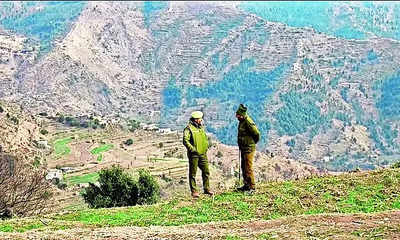NEW DELHI: Supreme Court on Wednesday pulled up the Assam government for not explaining why foreign nationals were being kept in detention centres and not being deported to their country and asked the chief secretary to appear before it through virtual mode on the next date of hearing with an explanation.
A bench of Justices Abhay S Oka and N Kotiswar Singh said the fundamental right to life was not confined only to citizens but all people, including foreigners, and immediate steps should be taken to deport them to their country.
The bench was hearing a case pertaining to 270 people in detention centres/transit camps in Assam. “Time of six weeks was granted to the state to file compliance affidavit. We expected the state to put on record reasons for detaining 270 foreign nationals in the transit camps and details of the steps taken by the state govt for deporting the detenus,” the bench said.
Assam govt gets 6 weeks to file compliance affidavit
Time of six weeks was granted to the state govt to file compliance affidavit. We expected the state to put on record reasons for detaining 270 foreign nationals in transit camps and details of steps taken by state govt for deporting the detenus.
We find from the annexure to the affidavit that some of the foreigners are languishing in the camps for about 10 years and more. The affidavit does not give any justification for detaining 270 persons and, moreover, steps taken to deport them are not set out. This is a gross violation of orders of this court. We direct the chief secretary of Assam to remain present through VC and explain the non-compliance,” the top court said.
The lawyer appearing for Assam told the bench the deportation process of illegal migrants took place through the Union govt. He said complete details of illegal migrants, including contact address, were to be provided by the state govt to the ministry of external affairs, which then verifies the identities of the migrants through diplomatic channels.
Earlier, SC had directed Assam State Legal Services Authority to conduct visits at the Matia transit camp for foreigners to check the facility’s hygiene and food quality.











